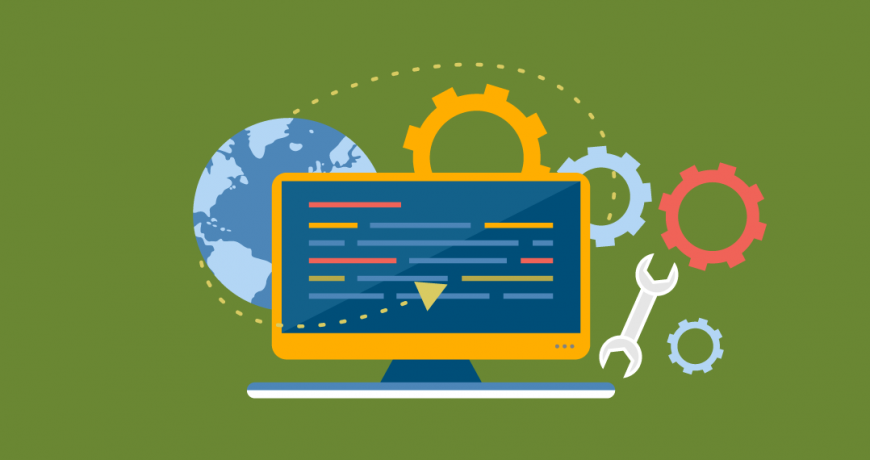A slow website is more than just frustrating—it can harm your search engine rankings, reduce conversions, and drive away visitors. In today’s digital world, speed is everything. Whether you’re running a blog, business site, or online store, optimizing your WordPress site for faster performance is essential.
In this article, we’ll cover why WordPress speed matters, and provide multiple practical solutions to speed up your site. We’ll also highlight professional services and hosting options to ensure your website stays fast and reliable.
Why Website Speed Matters
- User Experience – Studies show visitors leave if a site takes more than 3 seconds to load.
- SEO Rankings – Google uses site speed as a ranking factor.
- Conversions & Sales – A faster site keeps users engaged and increases sales or leads.
Clearly, a slow site costs you in traffic, rankings, and revenue.
How to Check Your Website Speed
Before making improvements, test your site’s performance.
👉 Use Google PageSpeed Insights to see how your site performs on both mobile and desktop.
Other good tools include:
- GTmetrix
- Pingdom Tools
- WebPageTest
These tools not only give you a score but also list specific fixes for your website. images, render-blocking scripts, or server response time.
Multiple Solutions to Speed Up Your WordPress Website
1. Choose Fast & Reliable Web Hosting
Your hosting environment has the biggest impact on speed. Shared, overcrowded servers often slow down sites.
👉 We recommend WebfulHost for WordPress hosting. Their servers are optimized for speed, offering SSD storage, caching support, and high uptime reliability.
2. Use a Lightweight Theme
Avoid bloated WordPress themes with unnecessary features. Instead, select lightweight, performance-focused themes that load quickly and are optimized for mobile.
3. Optimize Images
Large images are the most common culprit of slow websites.
- Use plugins like Smush, ShortPixel, or Imagify.
- Convert images to next-gen formats like WebP.
- Enable lazy loading so images load only when needed.
4. Enable Caching
Caching stores a static version of your pages, reducing load on the server.
- Use plugins like WP Rocket, W3 Total Cache, or LiteSpeed Cache.
- Consider server-level caching from your hosting provider.
5. Minify & Combine Files
CSS, JavaScript, and HTML files often load in bulky formats. Minifying them removes unnecessary spaces, comments, and reduces file size.
- Plugins like Autoptimize or Asset CleanUp help with this.
6. Use a Content Delivery Network (CDN)
A CDN stores copies of your site on servers worldwide, so users access it from the closest location.
- Popular options: Cloudflare, StackPath, KeyCDN.
7. Limit Plugins & External Scripts
Too many plugins slow down WordPress. Audit your plugins and remove any unnecessary ones. External scripts like chat widgets, ads, or analytics can also affect load time.
8. Keep WordPress, Themes & Plugins Updated
Updates often contain performance improvements. Keeping everything up to date ensures compatibility and efficiency.
9. Database Optimization
Over time, your database accumulates unnecessary data. Use plugins like WP-Optimize to clean it regularly and improve speed.
10. Professional WordPress Speed Optimization Service
Sometimes DIY methods are not enough, especially for business websites with complex setups.
👉 At Webful Creations, we offer a dedicated WordPress Speed Optimization Service that includes:
- Full website audit & speed analysis
- Advanced caching configuration
- Database cleanup
- Image optimization
- Server & CDN integration
- Code-level adjustments
Our experts ensure your site scores high on Google PageSpeed Insights and delivers a smooth user experience.
Frequently Asked Questions (FAQ)
1. What is a good loading speed for a WordPress website?
Ideally, your website should load in under 3 seconds. Faster sites not only improve user satisfaction but also have a better chance of ranking higher on Google.
2. How can I test my WordPress website speed?
The best free tool is Google PageSpeed Insights. It analyzes your website for Core Web Vitals, mobile/desktop speed, and offers detailed recommendations. You can also use GTmetrix or Pingdom Tools.
3. Do I really need a CDN for my WordPress website?
If you have international traffic, a CDN can make a huge difference by delivering content from servers closer to your visitors. It reduces latency, improves performance, and often includes security benefits.
4. Will too many plugins slow down my site?
Yes. Every plugin adds code that loads on your server. While some plugins are lightweight, too many or poorly coded ones can drastically affect performance. Audit your plugins regularly and keep only essential ones.
5. Can cheap hosting cause a slow website?
Absolutely. Budget hosting often means shared servers overloaded with websites. This leads to slower response times and downtime. Investing in optimized hosting, such as WebfulHost, ensures better performance.
6. What if I don’t have time to optimize my site myself?
That’s where experts come in. Our WordPress Speed Optimization Service takes care of everything—so you can focus on your business while we make your website lightning fast.
Final Thoughts
Speed is no longer optional—it’s a necessity for success online. From choosing the right hosting provider like WebfulHost to leveraging professional WordPress Speed Optimization Services, every improvement you make translates into better performance, higher rankings, and more satisfied visitors.
Invest in speed today, and watch your WordPress site outperform the competition.


